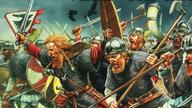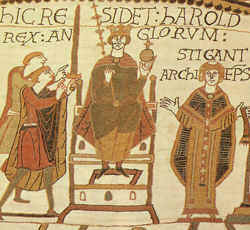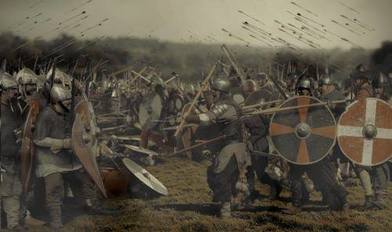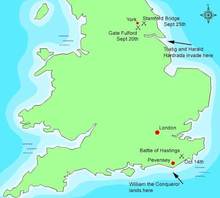“No man can make himself king, but the people have the choice to choose as king whom they please; but
after he is consecrated as king, he then has dominion over the people, and they cannot shake his yoke off their necks”
Harold was king, but Edgar Aethling, Harald Hardrada, and William of Normandy had every intention of holding that title themselves.
The law of succession followed the laws of primogeniture. However, in the 11th century, after the death of a king with no heir, the Witan had the right to choose the king from among the royal family. Edward had made his choice known to the Witan and all had agreed, therefore Harold’s claim to the throne was valid, but this made no difference when rule by the right of conquest was just as lawful.
At Fulford England's northern army sustained substantial losses, and together with the Battle of Stamford Bridge just six days later, despite that being an English victory, resulted in a depleted and weakened English army who faced the third and ultimately successful claimant to the throne - William the Conqueror.





 RSS Feed
RSS Feed
